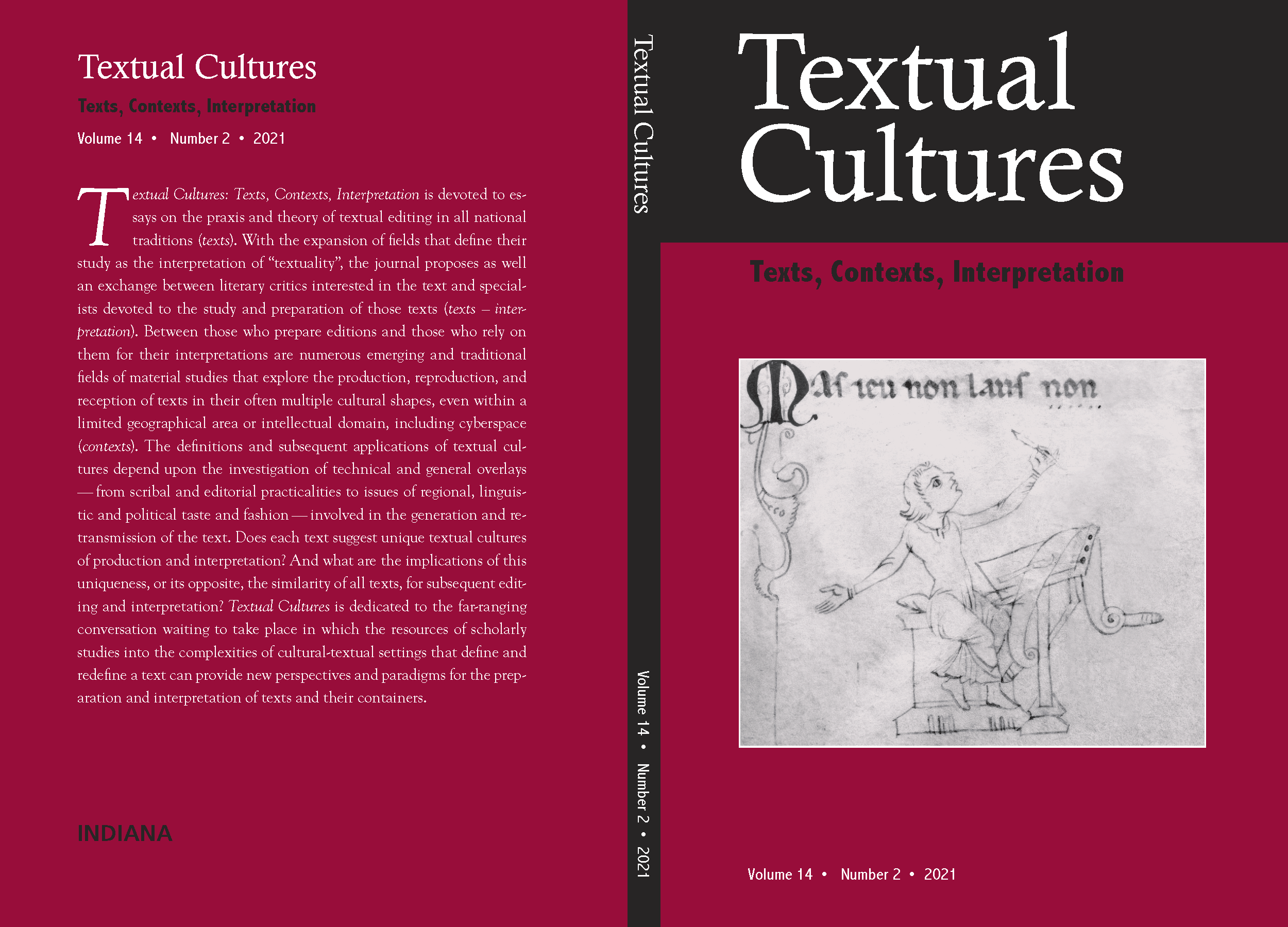Editing Versions Historicism, Biography, and the Digital in Tanselle’s Descriptive Bibliography
Main Article Content
Abstract
G. Thomas Tanselle’s Descriptive Bibliography — a monumental compilation of essays devoted to bibliographical theory and practice as they have evolved as a discipline since the 1960s — not only attests to Tanselle’s vibrant career but is also an occasion to reflect on bibliography as a “way of thinking” about book history, material culture, the editing of fluid texts, and digital scholarship. In our profession, the field of descriptive bibliography has endured decades of begrudging tolerance as “merely” custodial rather than critical; and yet bibliography — in so far as it records change — is the fundamental grounding for any historicist and materialist project. Melville’s so-called “L-word” in Typee — once it is tracked from manuscript to first edition to revised edition — records an “oscillating revision” in Melville’s thinking and writing that exemplifies the dance between accident and intentionality in the creative process. Tanselle’s essays on the practical workings of bibliography also suggest the field’s ability to extend its scope beyond idealized notions of the authorial work and to embrace non-authorized reprints, periodical placement, illustration, and non-literary documents, as well as adaptive revision in film and translation. Descriptive bibliography is essential for our deeper engagement with how and why versions evolve. Advancements in digital strategies related to database and display will facilitate the future acceptance of descriptive bibliography among literary scholars and critics seeking to test the interpretive potentials of biography, material history and culture, and the fluid text.
Downloads
Article Details
Authors who publish with this journal agree to the following terms:
- Authors retain copyright and grant the journal right of first publication with the work simultaneously licensed under a Creative Commons Attribution License (see:http://creativecommons.org/licenses/by/3.0/us/) that allows others to share the work with an acknowledgment of the work's authorship and initial publication in this journal.
- Authors warrant that their submission is their own original work, and that they have the right to grant the rights contained in this license. Authors also warrant that their submission does not, to the best of your knowledge, infringe upon anyone's copyright. If the submission contains material for which an author does not hold the copyright, authors warrant that they have obtained the unrestricted permission of the copyright owner to grant Indiana University the rights required by this license, and that such third-party owned material is clearly identified and acknowledged within the text or content of their submission.
- Authors are able to enter into separate, additional contractual arrangements for the non-exclusive distribution of the journal's published version of the work (e.g., post it to an institutional repository or publish it in a book), with an acknowledgment of its initial publication in this journal.
